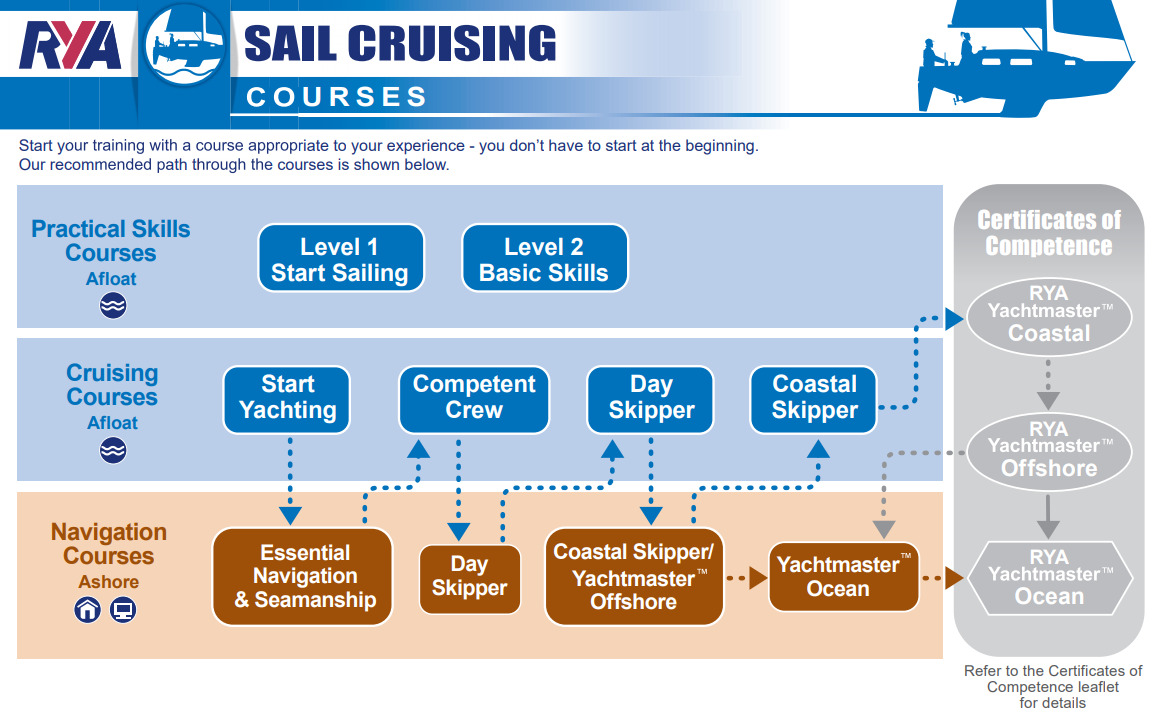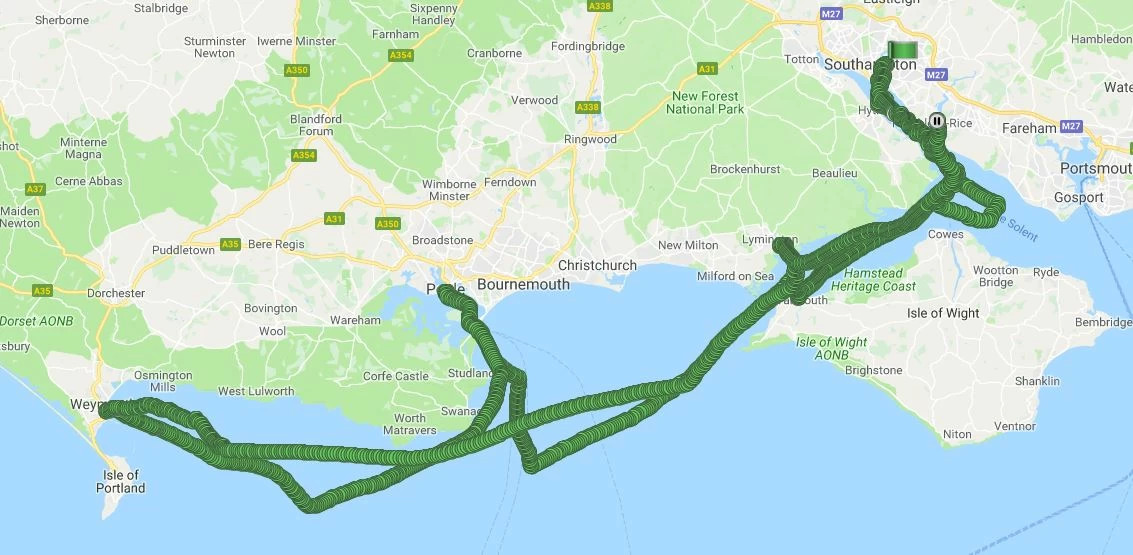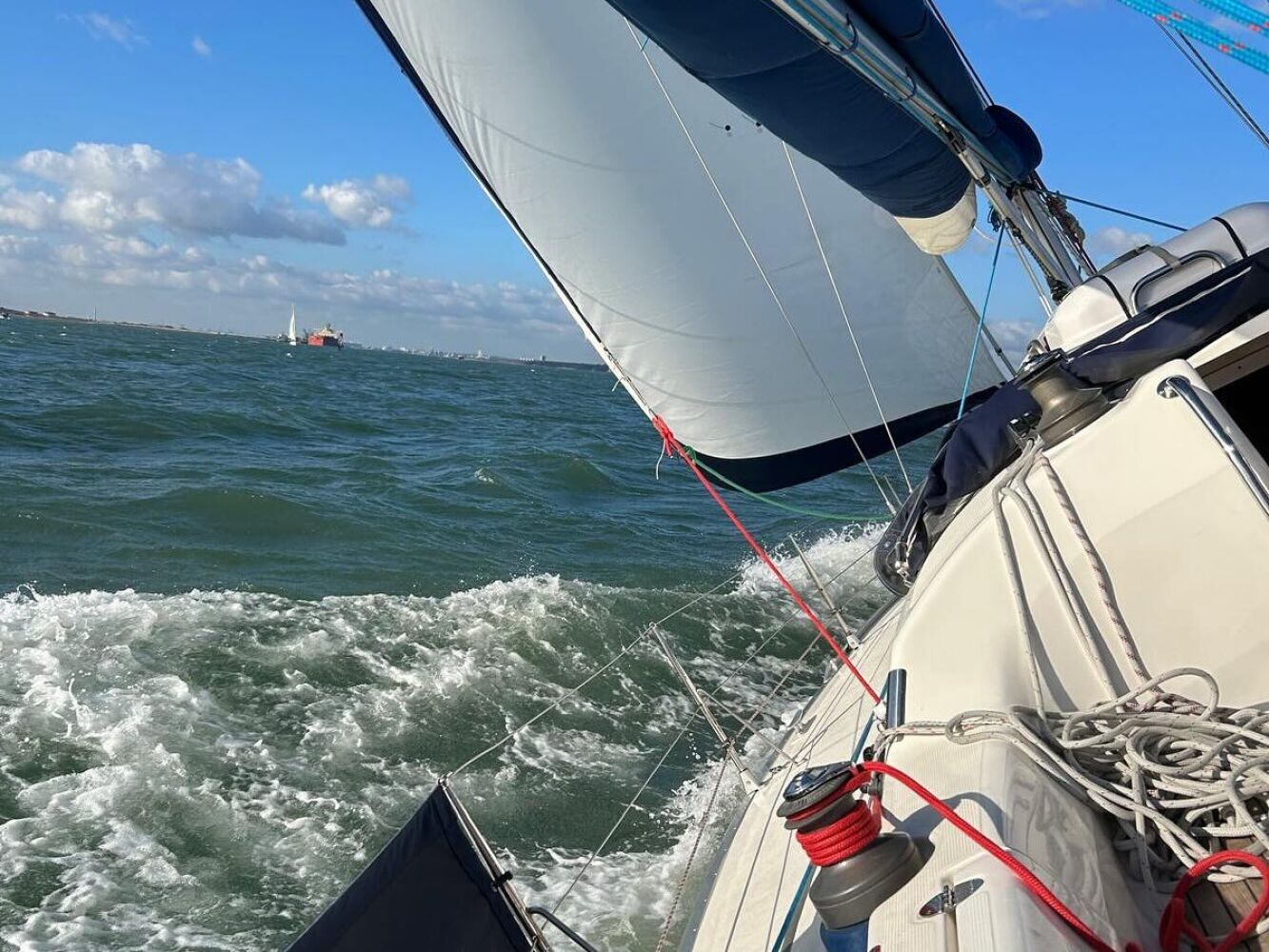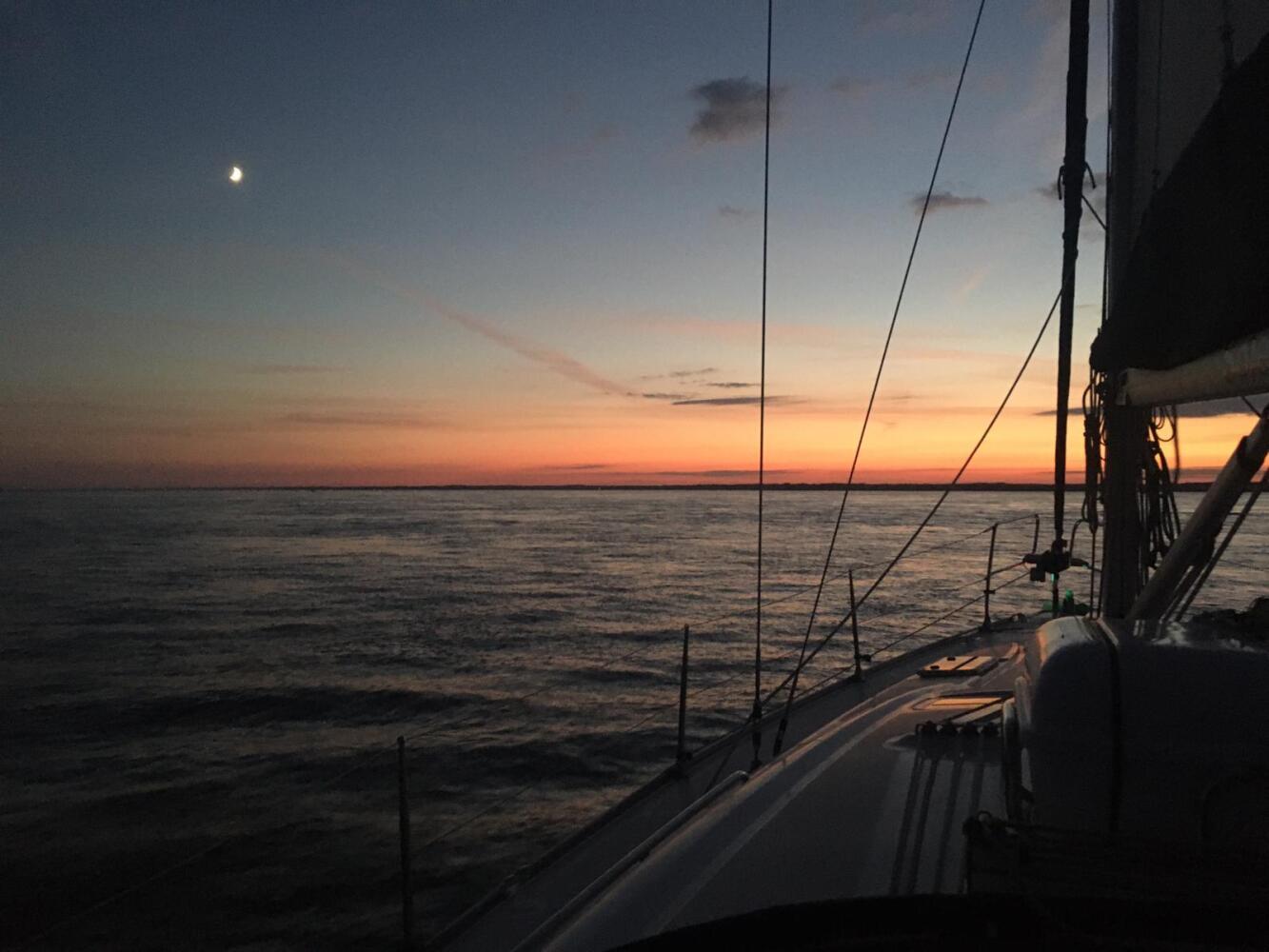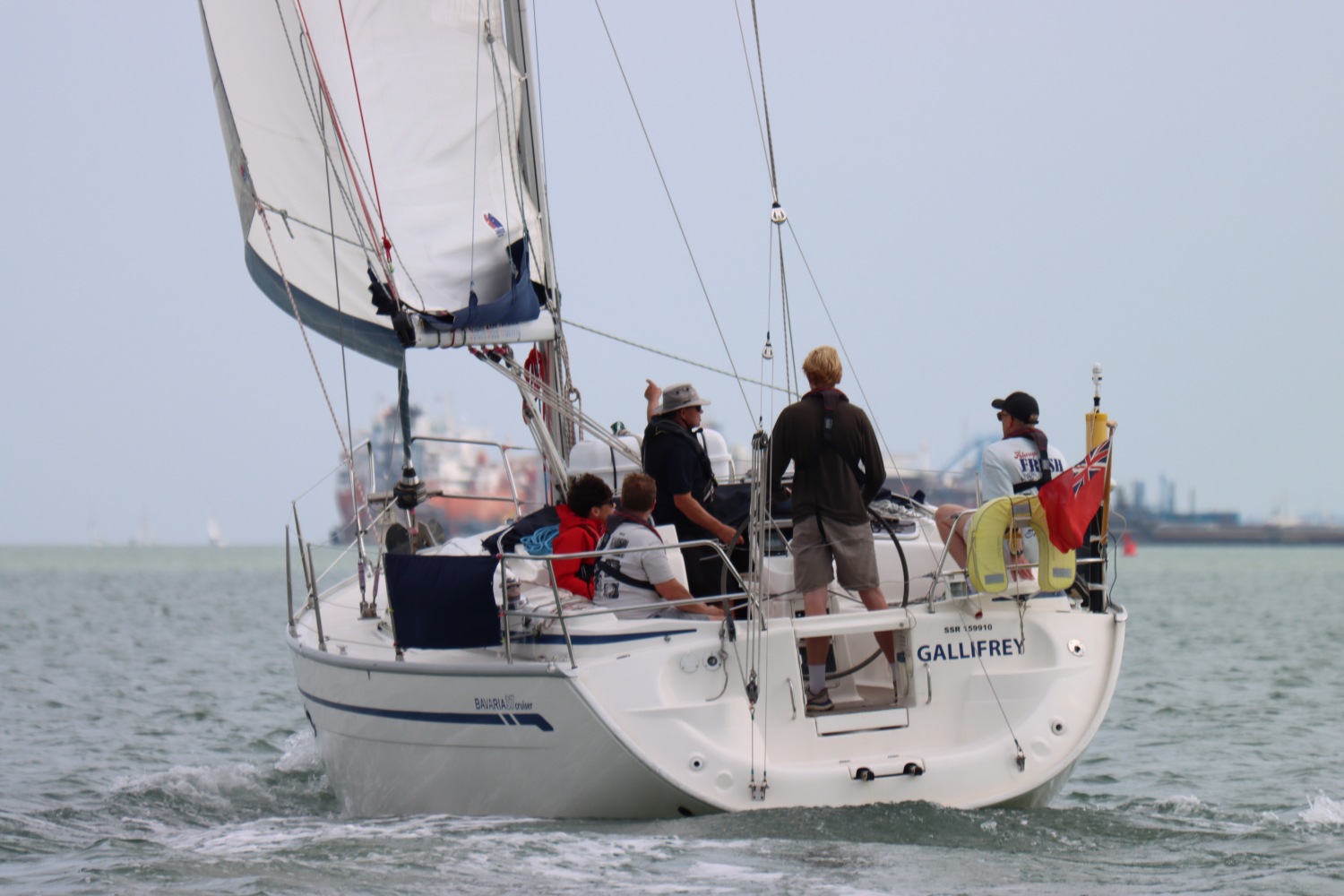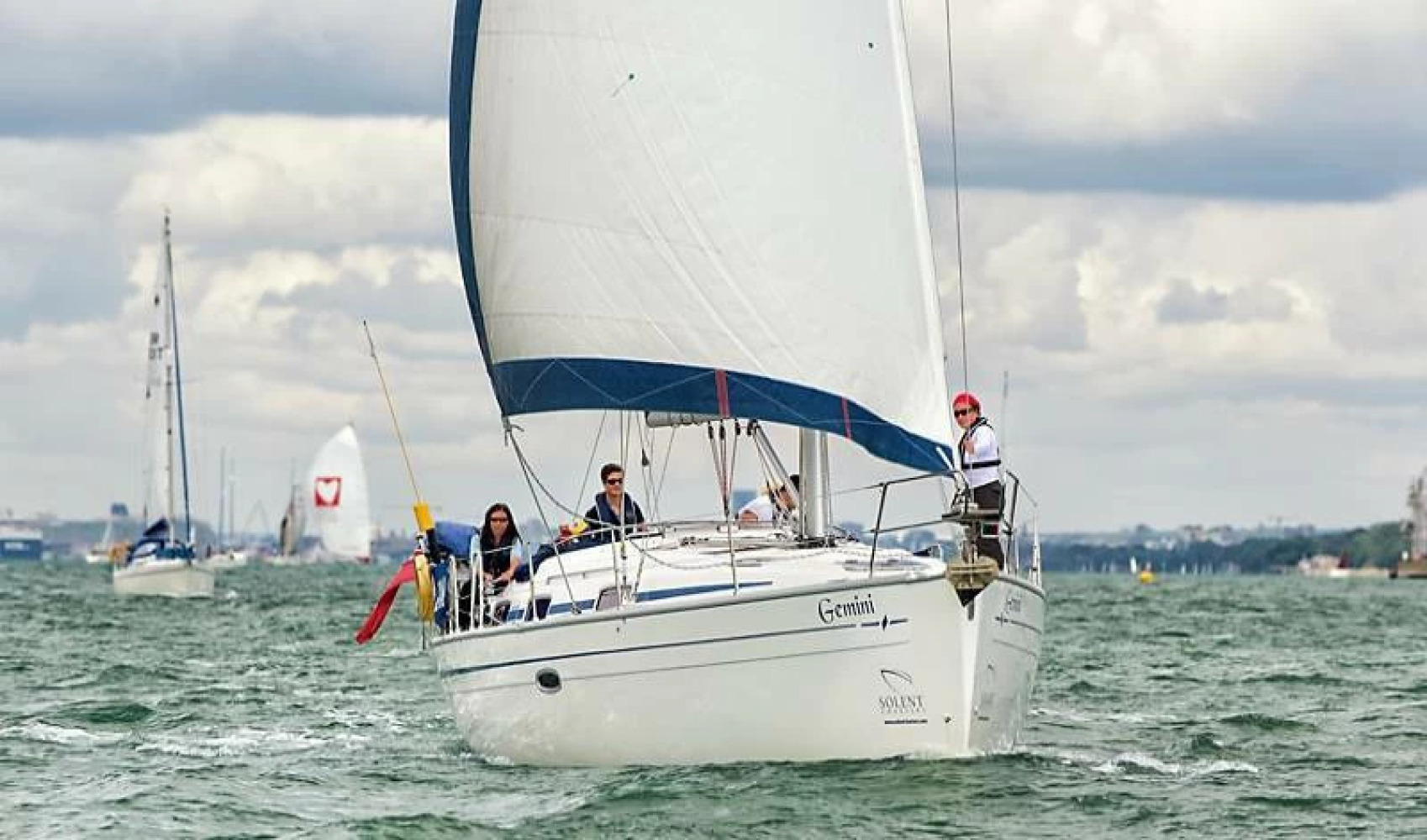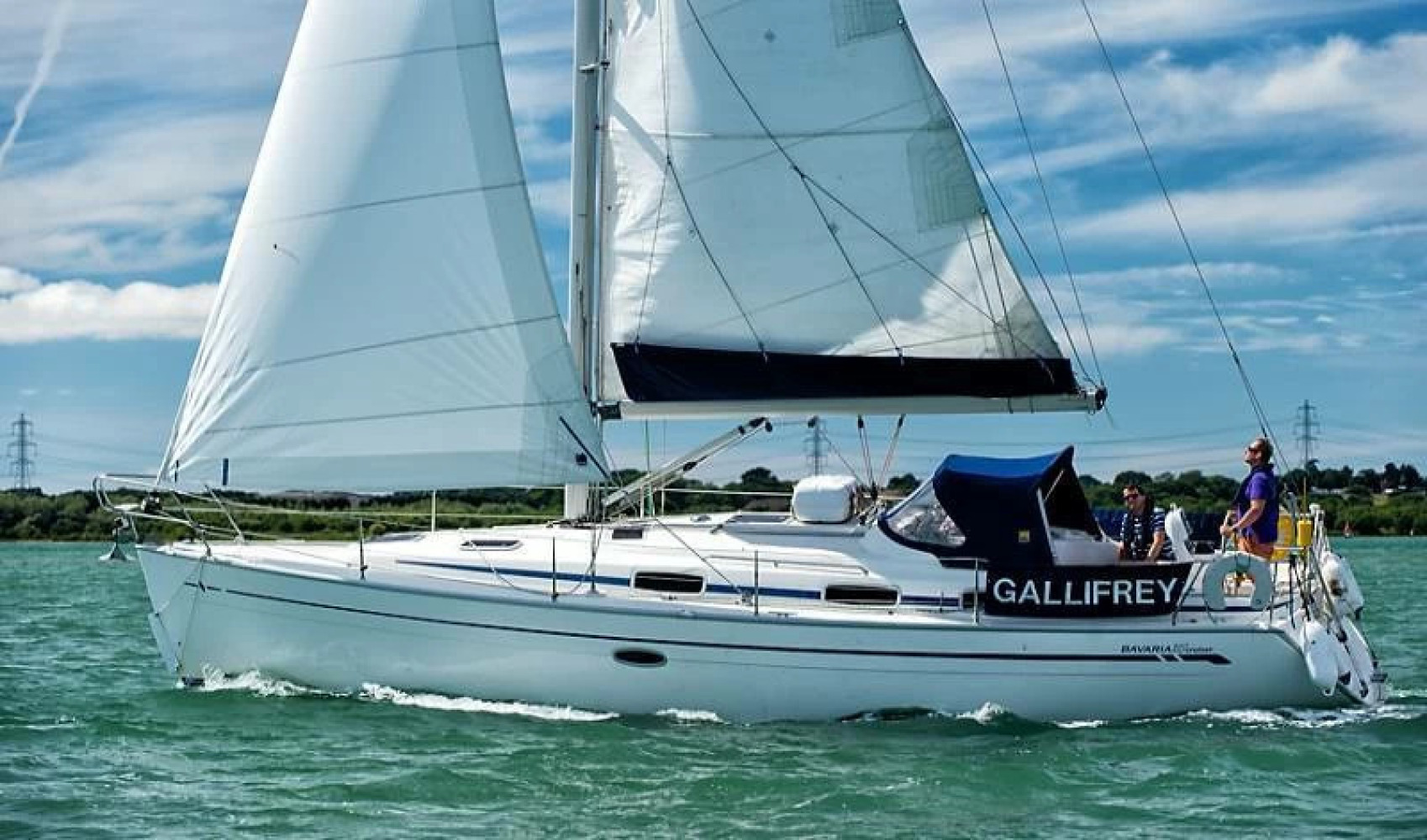The RYA Coastal Skipper Practical Course is the steppingstone between Day Skipper and the full RYA/MCA Yachtmaster Coastal Certificate of Competence Exam. Running over 5 consecutive days with 4 nights on board a Bavaria 37/38 costing from £499 per student.
Students should have theory knowledge to the level of RYA Coastal Yachtmaster and preferably hold a RYA Day Skipper Practical Course completion certificate. The course is aimed at enhancing existing skippering skills so it is important you are a competent sailor. You should be a well practised day skipper.
We run these courses with only 4 students per course!
All mooring fees and fuel costs are also included in the course fee. The RYA Coastal Skipper course teaches you the skills needed for extended coastal passages by day and by night, so opening up a whole new world of sailing!
RYA Coastal Skipper Sailing Practical Pre-requisites & Course Details
This 5 day course starts on the first morning at 9.00am and runs through about 4pm on the 5th day, every night being spent on the yacht. The course includes several night sails meaning a few long days. Unlike other RYA training centres we don`t mix abilities on this course, so the instructor can focus on teaching to the same high level with just 4 students on board. Minimum student age is 17. Under 18`s must be accompanied by a parent or guardian.
The full course syllabus is contained within the RYA Yachtmaster Logbook G15.
We don`t run this course in the summer months of June, July and August as we simply have too much daylight to achieve the night hours required.
The RYA Coastal Skipper practical course is an advanced course aimed at taking well practiced Day Skippers to the next level. To ensure you get the most out of the course it is preferable you hold a Day Skipper Practical Certificate but more importantly you have skippered a crewed yacht by day in familiar waters. It is also important you have theory knowledge to Coastal/Yachtmaster level (it is strongly recommended you attend a Coastal/Yachtmaster theory classroom based course first, not the online version).
It is assumed those undertaking the Coastal Skipper course are already competent skippers comfortable in taking charge of a sailing vessel for all day-to-day activities. These should include but not be limited to, sailing efficiently on all points of sail, navigation and pilotage by day, hoisting, reefing, basic berthing/leaving situations, use of springs and manoeuvres under engine including mooring buoys/anchoring/MOB. The course will develop and enhance these existing skills. However, the emphasis is on planning and executing longer coastal passages by day and by night.
The course also works on improving competency of close quarters sailing manoeuvres including MOB/mooring buoys/anchoring. The Coastal Skipper Course completion certificate reduces the number of miles required to take the Yachtmaster Coastal Certificate of Competence Exam. Candidates who have insufficient skippering experience will struggle to complete the course to the required level. Certificates will only be issued accordingly. All those attending the course should be well practised skippers’ but it is not unusual for the course to be used to build experience. Solent Boat Training often have students returning time and time again, including those with the course completion certificate, to extend their knowledge and experience. This is a fantastic value for money course but to get the most out of it ensure you have the prerequisite experience.
The aim of this course is to teach the skills and techniques required to skipper a cruising yacht safely on coastal passages by day and night.
1. Passage planning
Can plan a coastal passage including a consideration of the capability of the yacht, navigation, victualling, weather, ports of refuge, tidal heights, and tidal streams, publications required and strategy.
Know Customs procedures.
2. Preparation for sea
Is aware of safety equipment required for offshore passages.
Can prepare a yacht for sea including stowage, safety briefing, watch keeping, delegating responsibilities and equipment and engine checks.
3. Pilotage
Can prepare a pilotage plan, with consideration of surroundings, transits, clearing bearings, buoyage, port or harbour regulations and tidal considerations. Can pilot a yacht by day and night .
4. Passage making and ability as skipper
Can take charge of a yacht and direct the crew.
Can organise the navigation, deck work, and domestic duties of a yacht on passage Is aware of the significance of meteorological trends.
Is aware of crew welfare on passage.
Can use electronic navigational equipment for planning and undertaking a passage, including the use of waypoints and routes.
5. Yacht handling under power
Can control the yacht effectively in a confined space under power.
Can berth and unberth in various conditions of wind and tide.
6. Yacht handling under sail
Can use the sails to control the yacht in a confined space Anchoring and mooring in various conditions of wind and tide.
Can sail efficiently on all points of sailing.
7. Adverse weather conditions
Can prepare for heavy weather and yacht handling in strong winds.
Understands navigation and general conduct in restricted visibility.
8. Emergency situations
Can recovery of man overboard under power and sail.
Understands action to be taken when abandoning to the liferaft and during helicopter and lifeboat rescues.
This was the route our last RYA Coastal Skipper Sailing Course achieved during the 5 days of the course.
All Events are subject to Weather and Tidal Conditions. The Safety of our customers/clients/students will Always be our Top Priority.

